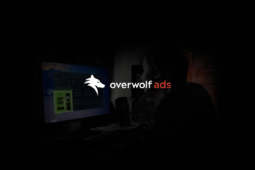Channel 4's Alex Wright on Digital v Linear TV, Netflix Ad Refunds, and AWO Proposals
by Grace Dillon on 24th Feb 2023 in Podcast
On this week's episode of The MadTech Podcast, Alex Wright, programmatic and platform leader at Channel 4, joins ExchangeWire senior editor Mat Broughton and CEO Rachel Smith to discuss digital overtaking linear TV, Netflix's ad tier, AWO's proposal for a single consent interface, and more.
Digital video to overtake linear TV
Are we witnessing the end of linear TV? What, if anything, could reverse this trend?
Digital video is expected to account for over half of view time by adults in the US, overtaking linear TV for the first time. Watching content on platforms such as YouTube, Netflix, and TikTok is anticipated to account for 52.3% of total viewing, according to analysis from Insider Intelligence.
Average digital viewing time sits at three hours and 11 minutes, with Netflix and YouTube each accounting for 33 minutes of view time on average. Insider Intelligence note that an overall growth in viewership across devices and the increasing use of streaming platforms to show live sports have contributed to this shift. They anticipate this trend will continue thanks to the popularity of social and video streaming among teenagers.
Netflix refund advertisers
How important do you believe that Netflix’s ad-supported tier will be to their survival?
Advertisers in Australia are being offered refunds by Netflix after the company’s ad-supported tier underperformed. The Basic with Ads offering, which launched last November, reportedly missed its target audience number by up to 70% thanks to lower-than-expected subscription sign ups, little inventory, and the lack of an established product.
These aren’t the first reports of Netflix reimbursing advertisers, with the streaming giant reportedly handing money back last December after missing audience targets. Despite the dismal headlines, forecasts for the ad-supported tier are looking up, with subscriptions predicted to rise thanks to Netflix’s crackdown on password sharing.
AWO report proposes single consent interface
Would a single consent interface work for the entire digital advertising ecosystem? How might it be implemented or enforced?
Barring Big Tech companies from collecting personal data could solve issues surrounding tracking consent and make the advertising industry more sustainable. That’s the premise outlined in a new study, carried out by data rights agency AWO on behalf of the European Commission, which states that claims that personal data improves advertising are “largely unsubstantiated”. These claims, the report asserts, embolden Big Tech companies with access to high amounts of data, resulting in higher revenue compared to European publishers.
The current system also makes it difficult for web users to take control over their personal data, as they have to signal their preferences on individual domains using different consent forms, according to the report. AWO propose that the EU push for a single interface which would enable web users to set their preferences and have them applied across the entire digital advertising ecosystem.
AVODDataDigitalNetflixPodcastPrivacyTrackingTV








Follow ExchangeWire